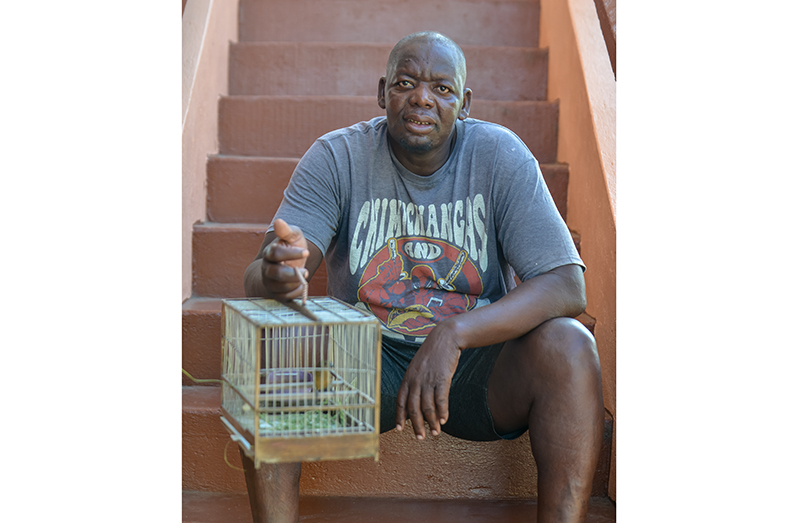Son of an African spiritualist talks about common conceptions of African spirituality
EVERYONE’S upbringing is different, with everyone having unique problems, challenges and family dynamics. Whereas many people contend with siblings or moving from place to place, some have more interesting childhood stories that shape them into the people they are today.
Many people have parents who are police officers, nurses or, if you are on the Corentyne, farmers. But Ron Emmanuel’s father’s profession was a little more than the usual run-of-the-mill jobs. Ron grew up alongside his father, who was a spiritualist. Ron and his family come from deep within the Berbice River.
His father had a deep-rooted and profound love and understanding of what he called ancestral spirituality. Ron says the practices his father knew were passed down for generations, and were seen as a way of helping and protecting those around you. As a man with a family today, Ron says what he saw from his father helped him gain his own state of peace and understanding of spirituality.
Ron Emmanuel has spent the majority of his life in the Corentyne. He grew up among five children, and spent three years in the Armed Forces after school. He said his childhood was simplistic, where they depended largely on nature. “We had no light or water; we had to depend on rain,” he stated during an interview at his Lancaster home.
This is not his first time living in the village of Lancaster. Having spent much of his childhood in the community, he moved away in his youth, only to return several years later. Due to the nature of his father’s work, Ron moved to different parts of Berbice before settling down in the village of Lancaster.
Although his father’s work was often frowned upon, Ron says that his father’s intention was never to hurt anyone. Rather, he sought out spirituality through traditional practices involving various plants and prayers that were said to have been gained from their African counterparts and ancestors.

The Pepperpot Magazine met up with Ron at his Lancaster home. A jovial, welcoming and brave man, Ron told the story of his upbringing in a place in the Berbice River, and how his father impacted his family for years to come. Ron’s parents separated while he was still an infant, and his father brought him up.
“My old man used to travel a lot,” he said. “My mother and he left each other when I was three months old, and he took me. And everywhere he went, I went. And the last place he left, I stayed and started a family.” That place was Lancaster. Ron’s father was widely known for his seemingly supernatural abilities to help people with numerous afflictions, issues and challenges. Although some saw the work done by Ron’s father as harmful; dangerous even, growing up, Ron had always seen his father as a helper.
Ron describes his family’s practices as far more spiritual than ritualistic. He explained that his father dealt with all the problems brought to him by natural means. He believed plants found in remote areas of Guyana could fix any problem. Feelings such as envy are things that his father also sought out. “People have envy for different things. And when my father looked at someone, he could tell what was wrong.” Ron stated.
The knowledge of the various herbs needed was sacred and vital to Ron’s father. Ron explained that everything done by his father was done by natural means. His father would scour the backlands of Berbice to find the different mixes of plants to help the numerous cases he was faced with. “We used natural drugs. There are natural drugs that we would use. There are certain herbs and medicine that we would give you to drink,” Ron shared.
The only goal and intention of the work done by Ron’s father was that of helping. He emphasised that perhaps because their work seemed mystical, people believed they made sacrifices, among other things. But according to Ron, his father’s work was far more herbalistic and traditional than people knew. The defining factor of the work he saw his father do was helping. Ron painted a picture of his father and ancestors whose only goal was survival in a time long before this one; a time when men like his father sought to help. “All we did was help. If you need help, and we came and saw that, we helped as best we can,” he said.


.jpg)











